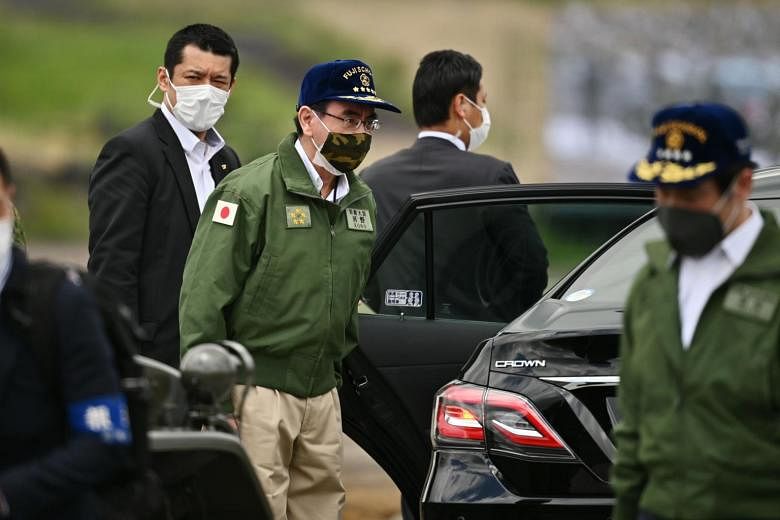TOKYO - Japan will not rule out the purchase of weapons giving it first-strike capability on enemy missile bases deemed imminent threats to its national security, Defence Minister Taro Kono said on Thursday (June 25)..
This came as he formalised the cancellation of a controversial plan to deploy the United States' land-based Aegis Ashore anti-ballistic missile system.
The system was meant to complete a defence triangle with a fleet of sea-based Aegis-equipped destroyers and Patriot Advanced Capability-3 surface-to-air missile batteries.
A defence review is due later this year to look into filling the security gap with the cancellation of the Aegis Ashore system.
Prime Minister Shinzo Abe has mooted a first-strike capability as an option, while top government spokesman Yoshihide Suga said this remained within the realm of self-defence and was in keeping with the pacifist Constitution.
But Chinese Foreign Ministry spokesman Zhao Lijian said on Wednesday: "We urge Japan to earnestly learn the lessons of history (and) continue to follow the path of peaceful development with concrete actions."
Still, Mr Kono on Thursday reserved strong comments on unilateral Chinese assertiveness in the region, which he described as "alarming".
Earlier this week, in a rare move, he identified a submarine that passed near Japanese territorial waters as "presumed to belong to China". The incident occurred last week.
Chinese ships have also sailed in waters around the disputed Senkaku/Diaoyu islands for 72 straight days, in the longest period since tensions over the territory boiled over in 2012.
"There's a lot going on in the South China Sea. What's going on in Hong Kong, where the 'one country, two systems' model is eroding? What's going on at the China-India border?" Mr Kono said yesterday.
"We need to pay much closer attention to this, and carefully monitor not just the Chinese capability but also their intention as well."
But he declined to elaborate when asked by The Straits Times on the implications of Chinese assertiveness on Japanese defence policy, saying only: "The current liberal international order doesn't allow unilateral change of status quo by force and coercion. If any country tries to do that, the international community needs to stand up and prevent that."
The surprise U-turn over the Aegis Ashore plan - made even though Japan was coming under pressure from US President Donald Trump to buy more US defence equipment - came because a costly technical redesign was found to be necessary to ensure that boosters would not fall on residential areas.
Alternatives under consideration include using floating islands with missile defence systems, expanding the fleet of Aegis warships, increasing its squadron of airborne early-warning aircraft, and deploying drones to monitor missile sites.


